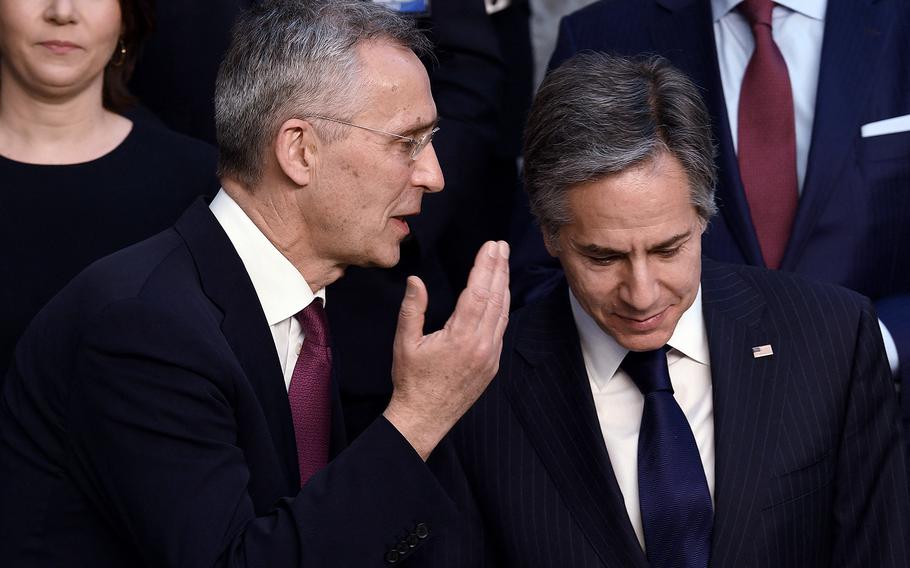
NATO Secretary General Jens Stoltenberg (left) speaks to US State Secretary Antony Blinken (right) before posing for a family photo with other foreign ministers at the NATO Headquarters in Brussels on March 4, 2022. (Olivier Douliery/AFP via Getty Images/TNS) (Olivier Douliery/AFP)
Finland is set to kick off a process that is likely to culminate in an application by Russia’s Nordic neighbor to join the defense alliance NATO.
The government, together with President Sauli Niinisto, on Tuesday finalized a white paper on changes to the nation’s security environment following its former imperial master’s attack on Ukraine. The report will be sent to parliament and made public when officially signed off by the government in a session due to take place on Wednesday.
While no proposal to join the North Atlantic Treaty Organization is set to be included, the government is prepared to later file an addendum on such a proposal should the required backing for it emerge in parliament, Foreign Minister Pekka Haavisto has said. More than half of voting lawmakers now support joining the alliance, according to an unofficial tally by Finland’s biggest newspaper Helsingin Sanomat.
Finland has seen a tectonic shift in attitudes toward the membership in NATO following the invasion of Ukraine, with the latest polls showing a majority of Finns now backing it. With the white paper set to be used as a vehicle for the parliament to debate the issue, a potential entry application could be filed before the 30-member bloc is set to meet for a summit in Madrid June 29-30.
The Nordic nation of 5.5-million people, which has the European Union’s longest border with Russia, has been warned by its eastern neighbor against joining NATO, raising concerns about potential aggression from Moscow. On Friday, Finland reported an attack on government websites and a suspected airspace violation by Russian aircraft.
The changing security landscape and public opinion is also seeing governing parties move toward supporting a membership in NATO. During the weekend, Finland’s Center Party, that’s part of a five-party cabinet run by Social Democrat Prime Minister Sanna Marin, opened the door to a potential membership bid.
In yet another sign of the change in opinions on security issues, Finns have also given a somber assessment of their eastern neighbor with 84% now seeing Russia a significant military threat.